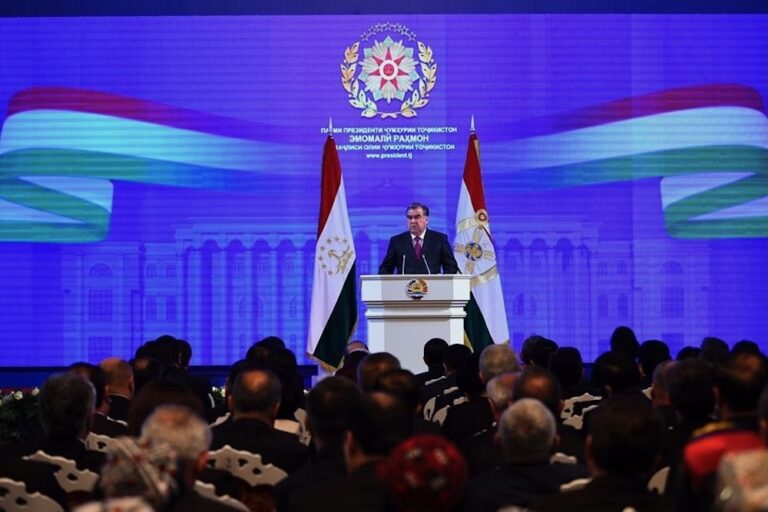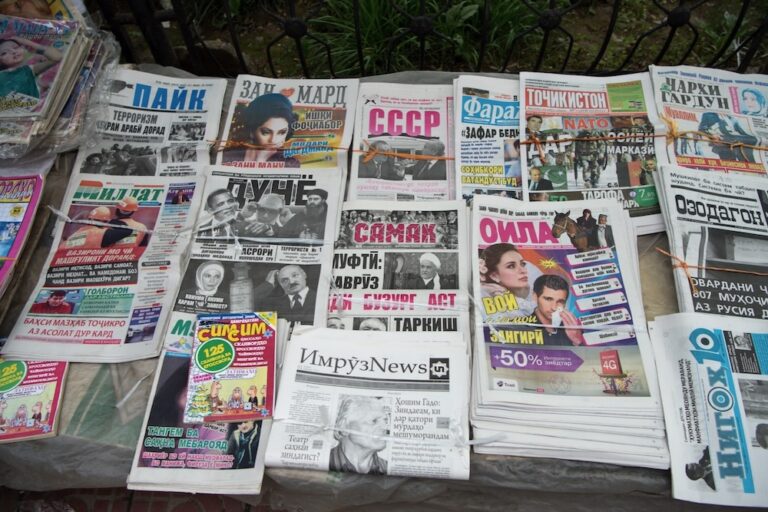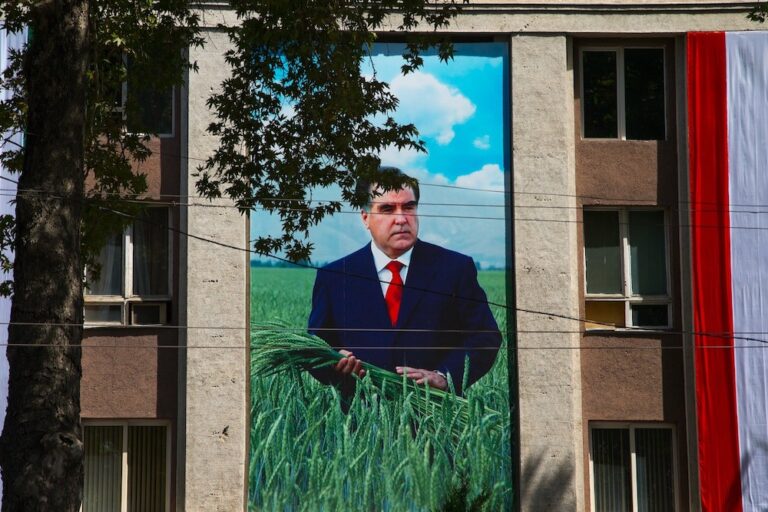(HRW/IFEX) – The following is a 4 November 1999 Human Rights Watch press release: **Updates IFEX alert of 28 October 1999** No independent political coverage in Tajikistan’s media Heavy media restrictions intensified on eve of presidential elections (New York, November 4, 1999) – On the eve of November 6 presidential elections in Tajikistan, the government […]
(HRW/IFEX) – The following is a 4 November 1999 Human Rights Watch press
release:
**Updates IFEX alert of 28 October 1999**
No independent political coverage in Tajikistan’s media
Heavy media restrictions intensified on eve of presidential elections
(New York, November 4, 1999) – On the eve of November 6 presidential
elections in Tajikistan, the government has quashed all but one independent
newspaper covering politics. In a report released today, Human Rights Watch
charged that government restrictions on the media and profoundly slanted
pre-election coverage are among the factors which make the elections a
farce, and have significantly compromised that country’s post-civil war
peace process.
On November 2, the major opposition force, the Islamic Renaissance Party,
called for an election boycott. Earlier, the United Tajik Opposition (UTO)
had suspended its participation in the Commission on National Reconciliation
(CNR) – the body responsible for overseeing the implementation of the peace
accord – thereby halting the peace process. They withdrew to protest the
government’s obstruction of presidential candidates registration, and called
for, among other things, equal access to state media for presidential
candidates. Although the Islamic Renaissance Party’s (IRP) candidate was
registered at the last moment, he withdrew, claiming the late acceptance was
only a face-saving measure by the government to make the election look more
democratic. There are now fears that the IRP candidate’s name will appear on
the ballot paper, despite his request to have his registration annulled.
“President Rakhmonov has chosen to eliminate all substantive coverage of
those who oppose him,” said Holly Cartner, Executive Director of Human
Rights Watch’s Europe and Central Asia Division. “The government is not
honoring its committments to protect freedom of expression.” Tajikistan,
which emerged from a five-year civil war in 1997 with the signing of a
government-UTO peace accord, saw as many as eighty journalists killed since
1992. During the war the government banned the major opposition parties and
their media, lifting these restrictions only in August 1999. Although some
UTO members have had limited access to the state-controlled television and
radio, they have either not availed themselves of the opportunity to express
their political views via this medium, or have been unable to do so. Their
efforts through the independent press have met with obstruction and other
difficulties. The political opposition not belonging to the UTO enjoys no
access whatsoever to the state media, and they have in recent months been
subjected to increasing press curbs.
“The peace settlement has not brought any relief to journalists,” said Ms.
Cartner. “And in this critical and tumultuous election period, the lack of
basic news is even more devastating,” she added. The one Dushanbe-based
newspaper which had published the views of the UTO and other opposition
parties ceased publication in mid-October 1999, following threats and
harassment from authorities, and arbitrary denial to print at its regular
state printing press.
Days before the presidential vote, only one independent newspaper containing
substantial political information is in print in Dushanbe, no independent
radio stations have been licensed to operate, and the newspapers of several
political parties are unable to publish. Independent television and
television production stations continue to experience administrative and
legal harassment, and access by nongovernmental political figures to state
media is close to nonexistent.
Particular restrictions on freedom of expression detailed in the report
include: pre-publication censorship; arbitrary denial to print at government
printing houses; monitoring and “counselling” of press services by
authorities; burdensome licensing procedures; routine self-censorship; and
the arbitrary revocation of accreditation. It also describes extraordinary
violence – murders, hostage-taking and the like – suffered by journalists
since 1992.
Human Rights Watch called on the government to immediately conduct full and
thorough investigations into ongoing attacks on and killings of journalists
since 1992 and make public all findings, and to cease immediately the
practice of questioning, surveying, harassing and otherwise intimidating
journalists, and ensure they are not officially penalized or harassed for
the peaceful expression of their opinions.
For a copy of the full report, please email zaretsn@hrw.org


